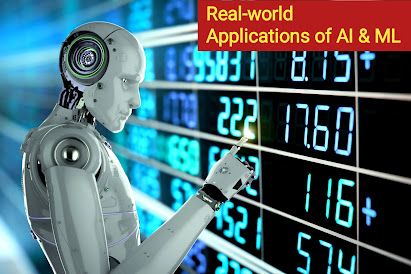" Exploring the Power and Potential of Artificial Intelligence "
Introduction:
Artificial Intelligence (AI) has become one of the most transformative and influential technologies of our time. From self-driving cars to virtual assistants, AI has permeated various aspects of our lives, reshaped industries and driving innovation. In this blog post, we will delve into the world of AI, exploring its capabilities, applications, and the ethical considerations that accompany its rapid advancement.
1. Understanding Artificial Intelligence:
Artificial Intelligence refers to the development of computer systems that can perform tasks that typically require human intelligence. These tasks include learning from experience, recognizing patterns, making decisions, and solving problems. AI can be broadly categorized into two types: narrow AI, which is designed for specific tasks, and general AI, which would possess human-like intelligence across a range of activities.
2. AI Applications:
AI is being integrated into various industries, revolutionizing the way we work and live. Some notable applications include:
- Healthcare: AI-powered diagnostics and predictive analytics are enhancing patient care and treatment.
- Finance: AI algorithms analyze vast amounts of financial data for better investment strategies and risk assessment.
- Manufacturing: AI-driven automation streamlines production processes, improving efficiency and quality.
- Customer Service: Virtual assistants and chatbots provide instant support and personalized experiences.
- Transportation: Self-driving cars and AI-powered traffic management systems aim to make transportation safer and more efficient.
3. Machine Learning and Deep Learning:
At the core of AI is machine learning, a subset that focuses on creating algorithms that enable computers to learn from data. Deep learning, a subfield of machine learning, involves neural networks that mimic the human brain's structure to process and analyze complex patterns in data. This technology has been pivotal in advancements like image and speech recognition.
4. Ethical Considerations:
As AI becomes more pervasive, ethical concerns emerge. These include:
- Bias: AI systems can inherit biases present in the data they are trained on, leading to discriminatory outcomes.
- Job Displacement: Automation driven by AI could potentially replace certain jobs, raising questions about retraining the workforce.
- Privacy: The use of AI in surveillance and data analysis can infringe upon individual privacy rights.
- Accountability: Determining responsibility in case of AI errors or accidents is a complex issue.
5. Future Possibilities:
The future of AI holds exciting possibilities:
- Advancements in Healthcare: AI-powered drug discovery, disease diagnosis, and personalized treatment plans.
- Climate Change Solutions: AI can analyze environmental data to propose innovative approaches for addressing climate challenges.
- Creativity and Art: AI-generated art, music, and literature are emerging as new forms of creative expression.
- Enhanced Education: Personalized AI tutors can revolutionize education by adapting to individual learning styles.
Conclusion:
Artificial Intelligence is reshaping our world and propelling us into a future filled with opportunities and challenges. As we continue to harness its potential, it's crucial to approach AI development with ethical considerations in mind. By fostering responsible AI practices, we can create a future where AI benefits all of humanity while mitigating its potential downsides.





Comments
Post a Comment